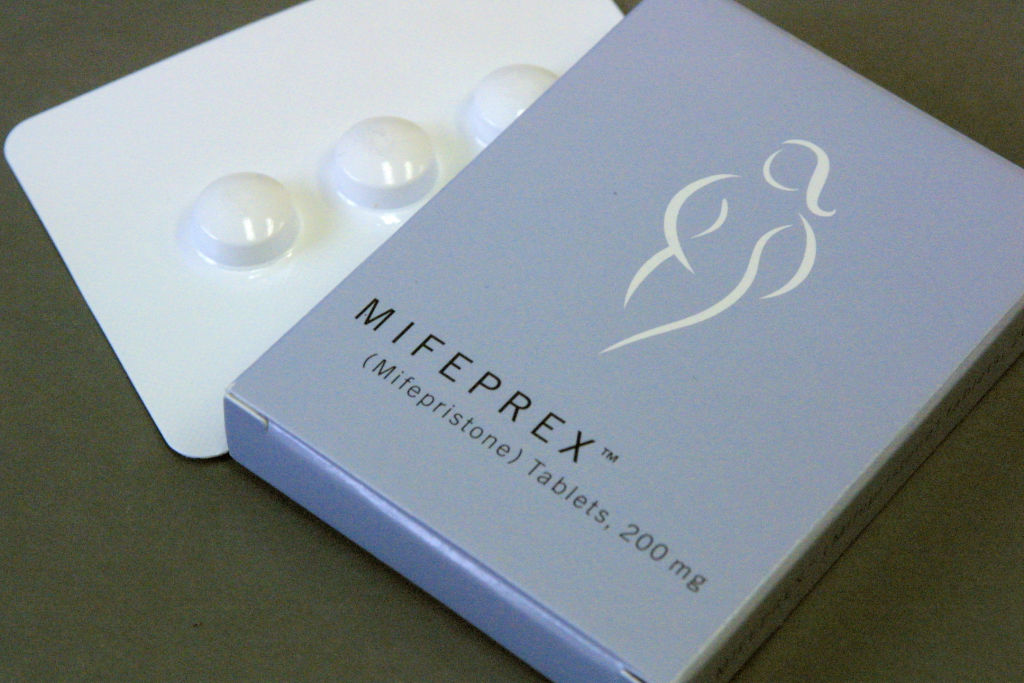The abortion industry often claims that the abortion pill is “safer than Tylenol.” Yet reports continue to emerge of increasing ER visits and complications due to chemical abortion even as the world considers making at-home DIY abortions — increasingly popularized and authorized during the COVID-19 pandemic — permanent.
Here are seven reasons why everyone should question the safety of the abortion pill:
1. Politicization
The U.S. Food and Drug Admininstration (FDA) politicized the abortion pill’s approval process two decades ago by choosing not to publish the names of the “experts” who reviewed the drug. The creation and sale of the abortion pill has since gone on to be more than a profitable venture.
Interviewers from Columbia University who spoke to those involved at that time noted that the names of the FDA staff involved with approving the abortion pill have never been released.
One of the FDA’s senior medical reviewers who “chose to remain anonymous” admitted, “It’s definitely not standard. It’s not routine, you can look up almost every other drug that I was the primary medical officer for and my name would appear right there on the review.”
2. Secretive Process
From the onset, executives, the company structure and original investors of the abortion pill manufacturer (Danco Laboratories) have been shrouded in secrecy with the exception of a select few, like the Packard and Buffett Foundations, as well as billionaire George Soros’ Open Society Foundations.
Some media questioned the secrecy:
- The Washington Post (2000): the FDA “took the unprecedented step of refusing to disclose the name or location of the manufacturer” of the abortion pill.
- The Washington Post (2000): the “agency broke with precedent by not publishing the names of the experts who reviewed RU-486 for the agency.”
- The Los Angeles Times (2000): “Danco refuses to release the names of its executives and investors. The company even persuaded the Food and Drug Administration to keep secret the location of the factory where the abortion drug will be produced…. The FDA acceded to Danco’s request that the name of its manufacturer be kept secret — and even shielded the names of the FDA researchers who had overseen the pill’s approval.”
Today, the pill’s manufacturing location and many of its funders remain cloaked in secrecy.

GENERAL INFORMATION: RUD 40 (Getty Images) IN THIS PHOTO: THE pill….controversial abortion pill, not to be confused with the ‘morning after pill'(Photo By STORMI GREENER/Star Tribune via Getty Images)
3. Conflicts of interest
Multiple spokespersons and study authors claiming that the abortion pill is “safe” have openly disclosed being on the payroll of Danco or its generic manufacturer GenBioPro, yet the media routinely cites these authors as if they are impartial and unbiased.
Clinical trials and studies which proclaim the safety of the abortion pill have been sponsored by organizations with ties to original abortion pill investors like the Packard and Buffett Foundations. These studies are often funded by known abortion pill investors and published in journals heavily tied to the abortion industry.
4. Studies indicate safety concerns
The results of a recently released Telabortion study, which implemented extremely stringent safety requirements than would be seen in normal use, revealed that 6% of “known outcomes” from the abortion pill were severe enough to result in emergency room or urgent care visits. That number appears to mirror data from the UK.
In the U.S., potentially 20,380 women per year are seeking care at an ER or urgent care facility after taking the abortion pill.
5. Safety data skewed
Due to dangerous and deadly outcomes, in 2011, the abortion pill was placed under a safety system called REMS in which Danco was required to report both deaths and complications of the drug.
However, under 2016 changes, put in place while Robert Califf served as FDA Commissioner under the Obama administration, Danco is no longer mandated to notify the FDA of complications other than death. Therefore, one may ever know just how many women have been injured by the abortion pill.
No national requirements to report abortion complications exist.
6. Women/teens are not being properly cared for
In 2019, pro-abortion ER doctor Dara Kass told Vice News that “Recently published results of the Gynuity pilot project showed that 8 percent of their patients who received abortion medication sought follow-up care at a local urgent care clinic or emergency department.”
This was confirmed by a recent analysis of adverse events reports (AERs) submitted to the FDA by abortion pill manufacturer Danco, which revealed that abortion pill clients experiencing a complication are more likely to receive care from an emergency center than abortion facility where they obtained the pills.
7. Taxpayers likely footing the bill for abortion pill complications
Under REMS, Danco’s approved prescribers must have the “Ability to provide surgical intervention in cases of incomplete abortion or severe bleeding, or to have made plans to provide such care through others…”
But a recent study which analyzed Medicaid data within the 17 states that allow taxpayer funded abortions found that the rate of abortion-related ER visits for chemical abortions increased 507% from 2002-2015.
According to the Charlotte Lozier Institute (CLI), the study also found that “Over 60% of abortion-related ER visits following a chemical abortion in 2015 were miscoded as treatment for a miscarriage.”
“Women who had a chemical abortion followed by a second abortion of any type within the next 12 months were more than twice as likely to wind up in the emergency room,” CLI states.
The findings suggest that the responsibility to treat women suffering from abortion pill complications is likely being pawned off on already understaffed local emergency centers where women/teens present as experiencing a “natural miscarriage.”
In certain instances, like the 17 states studied, the taxpayer is likely picking up the tab for these botched abortion procedures.
The abortion pill is much less safe than the abortion industry claims. This dishonesty does not benefit women or their preborn children. It simply benefits the industry’s financial bottom line.
Editor’s Note: FDA has received reports of serious adverse events in women who took mifepristone. As of June 30, 2021, there were reports of 26 deaths of women associated with mifepristone since the product was approved in September 2000, including two cases of ectopic pregnancy (a pregnancy located outside the womb, such as in the fallopian tubes) resulting in death; and several cases of severe systemic infection (also called sepsis), including some that were fatal. The adverse events cannot with certainty be causally attributed to mifepristone because of concurrent use of other drugs, other medical or surgical treatments, co-existing medical conditions, and information gaps about patient health status and clinical management of the patient. A summary report of adverse events that reflects data through June 30, 2021 is here.
“Like” Live Action News on Facebook for more pro-life news and commentary!







